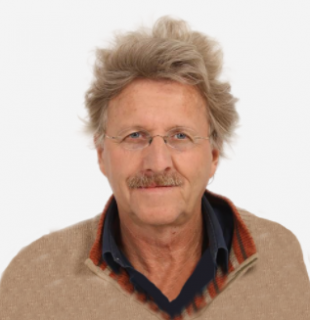Lifelong learning in fragile times

Jacques Zeelen[1]
Voor de Nederlandse versie, klik hier.
The UNESCO report “Learning: the treasure within”, published in 1996 under the leadership of Jacques Delors, has always been appealing to me. Its broad approach to lifelong learning, building on the concept of éducation permanente, entails that the central pillar of education for the 21st century should be learning to live together. The other pillars such as learning to know, learning to act and learning to be should always support this overarching common goal.
Since 1996 many things have – and have not – happened. This counts for countries in the global North as well as for those in the global South. The Dutch extensive agenda for lifelong learning hardly turned into reality in the twenty years following the report. My former colleague, late Professor Max van der Kamp, lamented on the brink of the new millennium that Delors’ broad agenda had been narrowed to a paternalistic appeal to people to invest in their own employability. The neoliberal agenda with the holy cow of the market logic conquered the stage. ‘Lower’ educated people, people with special needs and early school leavers were left in limbo and continued to be socially excluded.
The main message of the Lisbon agreement in 2000 for Europe was that people should be educated to reach a form of higher education (‘learning to know’) in order to deal with the new technological developments. The focus of vocational education at middle level was diverted to preparing students for higher education programmes. Education with a practical orientation (‘learning how to act’ as a craftsman or a craftswoman) got less attention. And the fact that ‘learning to act practically’ goes along with ‘learning to know’ as well as ‘learning to be’ was overlooked.
A similar reduction could be observed in the United Nations Millennium Goals and their effects in the global South. Of course it was very important to build more schools and to improve access, but there was less attention for the quality of education. Moreover, we saw dramatic neglect of vocational education and a poor preparation of learners for the challenges in the (mostly informal) labour market. The situation even deteriorated due to the mind-set of disdain towards manual work of the ‘low- educated’ – which was understandable due to their poor and mostly inhuman working conditions. Many in the global South grew to believe that a university degree was a prerequisite to be considered a well-respected citizen.
Several times – and with pain in our hearts – my colleagues and I experienced in Uganda that excellent vocational schools transformed themselves into universities. At the moment there seem to be more than 20 universities in Uganda. This one-sidedness in educational policies and programmes had devastating consequences: high school drop-out in primary and secondary schools, neglect of skills development (‘learning to act’) and community orientation (‘learning to live together’ and ‘learning to be’), extremely high numbers of youth unemployed, also those holding university degrees. The educated youth turned into a new group at risk.
Fortunately, since 2015 international policy plans have changed substantially. The United Nations developed sustainable development goals (SDGs) guiding us until 2030, with more attention for the quality of education, the importance of vocational education and training, the need for lifelong learning, social inclusion, decent work and sustainability. They serve as a global compass for the challenges of poverty, education and the climate crisis.
These SDGs are attractive goals, for both the global South as the global North, but they are not new as they have earlier been formulated by Delors. How to avoid that we end up with unfulfilled promises again? The possibility of failure has increased in these fragile times of extra uncertainty caused by the COVID-19 pandemic.
The SDGs can only be reached on the condition of a systemic transformation of the way we are producing, working and living together on our vulnerable planet. But – less ambitious – we could already gain a lot by a drastic democratisation of the policy implementation by involving educators, students, youth, employers, workers and their organisations, instead of dictating policy after policy to them.
We need new fresh partnerships with a prominent place for a regional perspective. For example, the ‘Lifelong Learning Youth Group’ connected to Gulu University in northern Uganda is organising community learning cafés. Here, local youth, educators, researchers, students, farmers, local business man and women are talking with each other to explore promising trajectories for meaningful educational programmes, skills training, entrepreneurship development, and preparing for decent work in the region.
Also in Groningen in the Netherlands creative initiatives are emerging where companies, vocational schools and universities try to find a new way of working together on an equal basis. New training programmes for the youth are being developed preparing them for decent work, enriched with responsibilities to deal with the new technological and digital challenges.
Honouring Jacques Delors, ‘Learning to live together’, should get much more priority also in these times, to create multi-dimensional learning opportunities for the socially excluded in the global South and the global North.
24 November 2020 – Groningen, the Netherlands / Gulu, Uganda
[1] Professor ‘Lifelong Learning and Social Intervention in a globalised context’, Globalisation Studies Groningen, University of Groningen (UG); UNESCO Chair holder ‘Lifelong Learning, Youth and Work’, Gulu University, Uganda
